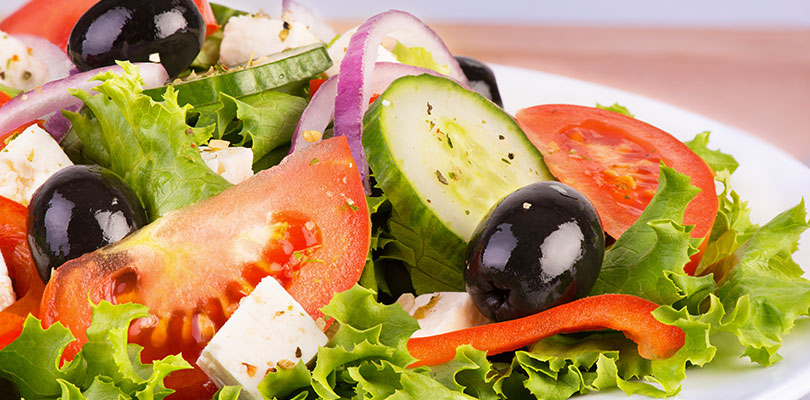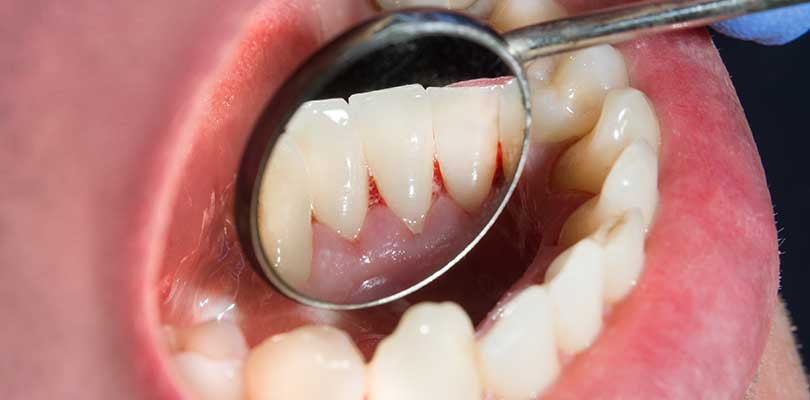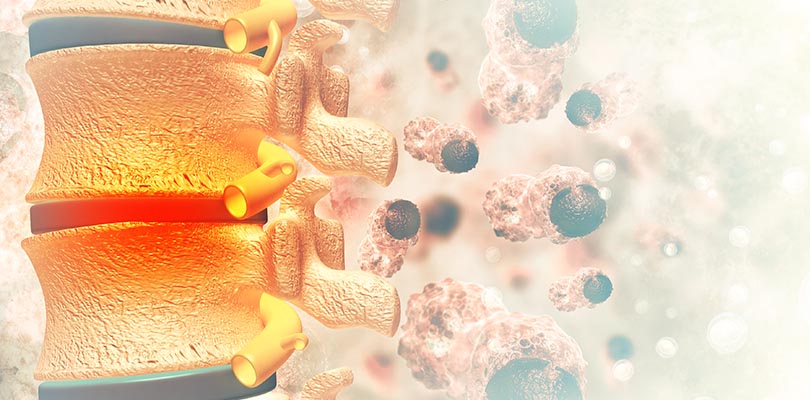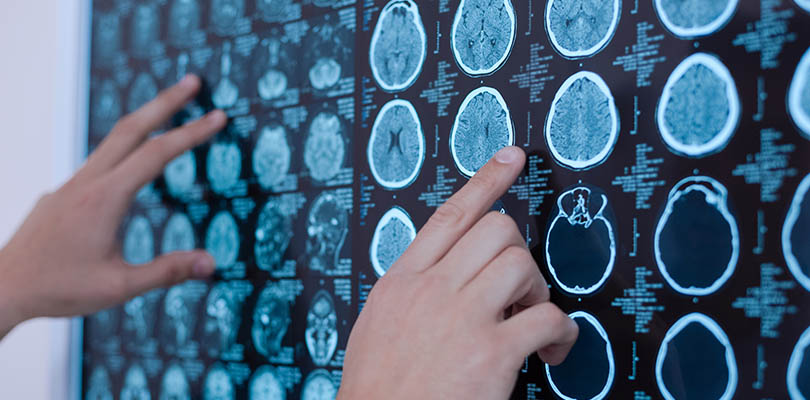Photo Credit: MikeyGen73 / iStockPhoto.com
Diet and Cancer
What you eat and how much food you consume has a direct impact on your risk of contracting cancer. Even conservative professional cancer organizations recognize that at least one-third of all cancers are related to diet. According to many leading experts in the fields of nutrition and cancer, the actual occurrence is more likely to be substantially more.
Diet and Our Cells
If you pause for a moment to think about it, diet and its impact on cancer make sense. Our cells are constantly being replaced. In fact, every cell that is in your body right now was not there seven years ago. They have all been replaced.
What we ingest provides the building blocks for cell repair, growth, division and replacement. If we eat healthy foods, our bodies are provided with high quality materials for building normal cells.
Unfortunately most of the food the majority of folks consume is of poor quality. We unknowingly take in countless pounds of additives, pesticides, fertilizers, hormones and other chemicals every year.
Weight, Hormones and Cancer
It is widely recognized that obesity increases the risk for the development of many cancers, including breast cancer. Many toxins are stored in the fatty tissues of our bodies; so, the more fat, the more toxic build-up.
In the case of breast and other hormonally-linked cancers, the implications are even stronger. For example, a woman’s body produces three kinds of estrogen that must be maintained in a delicate balance with each other, as well as progesterone. If a disruption of that balance occurs, health issues — including an increased risk for cancer cell development — arises.
Each of the three types of estrogen affects the body differently — one type is particularly related to an increased risk of breast cancer. All estrogens, including the one linked to breast cancer, are stored in fat cells. Because of this, women who are overweight have a higher risk of developing or relapsing from breast cancer.
Inflammation and Cancer
When irritants attempt to enter our body, our immune system springs into action and protects us. While our body is fighting the irritant, our skin becomes inflamed. This inflammation works great to fight infection, but there is much evidence pointing towards too much inflammation causing cancer.
When we consume foods that contain unhealthy ingredients, our bodies are forced into a chronic state of inflammation. It may be at such a low level that we do not recognize it. As our bodies attempt to cope with toxins, energy we need for healing and healthy cell regeneration is diminished.
This occurs at an imperceptible level over a period of years or decades. While some cancers arise and are identified rapidly, most are forming for many years before they are detected. Poor quality, chemical-laden foods all increase inflammation within our bodies. Diets that contain unhealthy fats, hard liquor and poor quality meats are particularly dangerous.
Eating to Prevent Cancer or Its Recurrence
Nutrition is an essential aspect of cancer prevention and treatment. Because the human body is strong and adaptable, it can often be fed nutrionally poor foods for long periods of time without obvious health issues. Unfortunately, subtle damage is occurring undetected.
You know your diagnosis and that you require treatment — so what’s with all of the crazy letters and numbers? Let's take a look at the stages of cancer.
If you have or had cancer, you need to eat the best quality foods you can afford because quality food is essential to building healthy cells. Your diet is an central aspect of your wellness plan. In addition, you need to conserve energy so it will be freed up for healing.
Many cancer treatments stress your body and create toxins within it. Some valuable chemotherapeutic agents and radiation therapies are toxins themselves. Eating a healthy diet will increase your energy levels and improve your resistance to infections during treatment.
Eat High Quality Food
Organic foods can be costly in the short run, but they can save you money and possibly your life in the long run.
Consider growing your own vegetables. If you are actively treating cancer, you may not be able to do this, so purchase organic food at grocery stores, natural food markets, or farmer’s markets.
Whenever possible, purchase local foods. You not only support the local economy, you obtain higher quality foods and help the planet.
Local produce is picked when it is fresh, so it contains higher amounts of cancer-fighting antioxidants than foods that have been picked before they were ripe and transported for long distances.
In addition, small farms generally raise animals much more humanely than large commercial corporations do. As a result the animals are healthier and the foods produced often have higher nutritional values than those from commercial farms. In addition, you know where your food is coming from and have the peace of mind that the animals were treated humanely.
In many Western nations dairy products are not required to be labeled as containing artificial hormones. Additionally, food labels do not need to indicate whether or not products are irradiated. Irradiation is a process of radiating food to destroy germs and preserve it longer, however it can result in a loss of nutritional value.
Healthy Foods to Eat
It’s important to pay attention to your diet and take nutrition seriously, especially if you are at risk of developing cancer or relapsing. Consider adding the following foods to your diet:
- Limit your intake of meat, including poultry. If you do eat meat or consume products from animal sources, such as yogurt, eggs, milk and cheese, purchase products from organic, free range or wild animals.
- Wild fish caught from the ocean are typically healthy, but farm-raised fish do not offer the same health benefits.
- Eat plenty of fresh fruits and vegetables. Berries and members of the cabbage and onion families contain potent anti-cancer compounds.
- Try to include fruits and vegetables from each color family. Each color is associated with specific health-enhancing phytochemicals. Brightly colored fruits and vegetables are rich sources of bio-flavonoids. Dark green leafy vegetables are packed with vitamins and minerals. Beta-carotene and lycopene are just a couple of the potent cancer-fighting compounds that are found in fruits and vegetables.
- Include a wide array of mushrooms in your diet. Shitake mushrooms are particularly helpful and are known to fight tumor formation, are low in calories, and enhance immune system health.
- Include some sea weed in your diet. Wakame contains the highest percentage of anti-tumor agents, but all types are beneficial.
- Include whole grains, nuts and seeds in your diet. They contain fiber, protein and a wide array of vitamins and minerals. Barley contains compounds that inhibit cancer.
- Include plenty of herbs and spices in your diet. They can help to relieve discomfort related to cancer, add variety to your diet, and are packed with concentrated amounts of cancer-fighting compounds.
Enjoy Eating Well
Eating a healthy diet will not only provide your body with the tools it needs to fight cancer, it will help you to maintain a healthy weight, feel better, and enhance your vitality. Good quality foods taste better and can improve the health of your entire family. Be sure to select foods you enjoy eating, so eating well can be a part of a cancer prevention and treatment plan that you look forward to.







